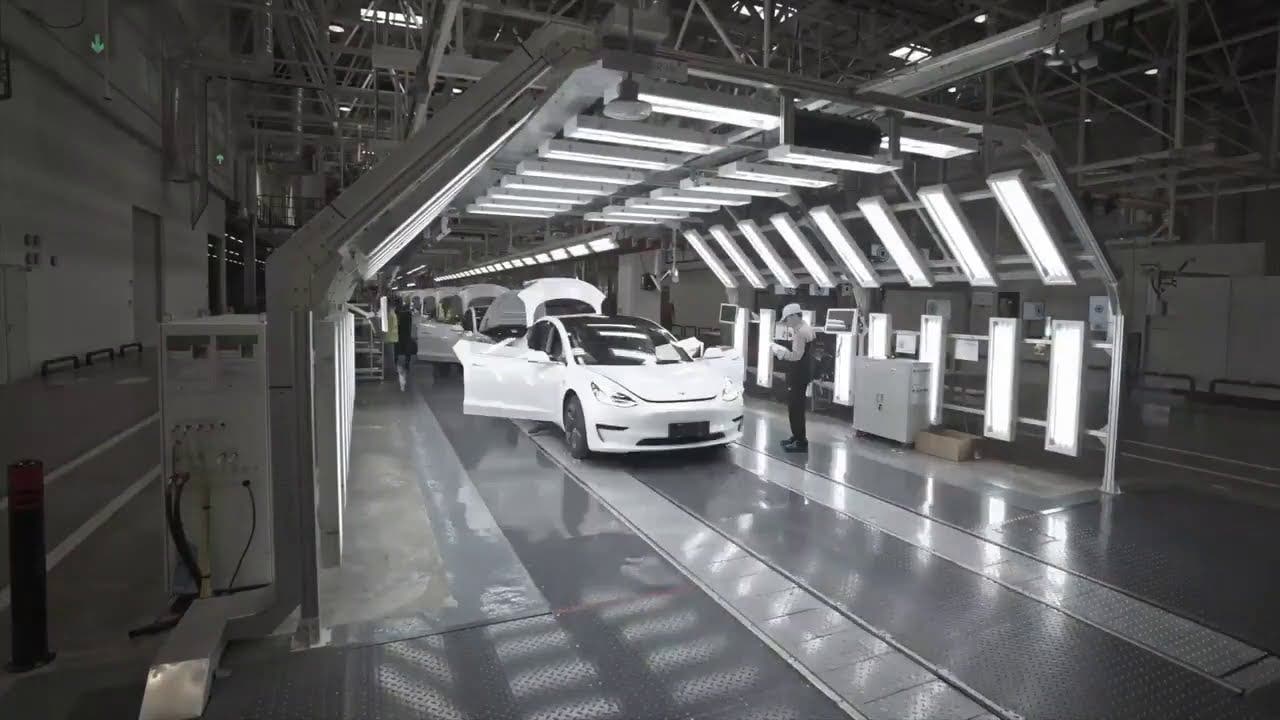The Business Roundtable, a prominent association of chief executive officers of major U.S. corporations, recently released the findings of its latest survey, revealing a notable increase in optimism among corporate leaders following the recent election. This shift in sentiment, as reported by participating CEOs, marks a potentially significant development in the business community’s perception of the economic landscape. The survey results suggest a broad trend of confidence across a range of sectors, reflecting an anticipation of positive policy changes and a corresponding boost to business growth.
The Business Roundtable regularly conducts surveys to gauge the outlook of its members, providing a valuable barometer of corporate sentiment and expectations. The most recent survey polled CEOs from diverse industries, ranging from technology and manufacturing to finance and retail. The survey questionnaire covered a range of topics, including anticipated regulatory changes, projected business investments, employment forecasts, and overall economic confidence. While the specific questions and the full dataset of responses are subject to further analysis, the overall consensus indicates a positive shift in outlook compared to prior surveys.
One key aspect of this increased optimism appears to stem from the perceived potential impact of the new administration’s economic policies. While the survey results do not detail the specific policies that are driving the optimistic outlook, previous policy proposals have included a focus on reduced regulation, tax reform, and infrastructure investment, all of which could have significant implications for business operations and profitability. These policies, along with others that may be enacted, are anticipated by many CEOs to stimulate economic growth, create new market opportunities, and reduce operational costs. It is important to note that this optimism is based on expectations and proposed policies, which are subject to change, and their impact will depend on how those policies are ultimately implemented.
The surveyed CEOs also expressed a generally positive outlook regarding the potential for increased consumer spending. This expectation seems to be driven in part by anticipation of tax cuts and a more robust economy. Increased consumer spending is typically seen as a positive sign for business revenues, as demand for goods and services tends to rise with increased disposable income and overall consumer confidence. Therefore, the anticipation of an increase in consumer spending plays a considerable role in the overall upbeat tone of the survey results.
Furthermore, the survey touches upon the expectations regarding foreign trade. While the survey did not directly delve into specifics regarding international trade policy, the overall confidence level amongst CEOs indicates a general belief that trade relations will remain stable or improve under the new administration. This is an important factor, given that many large US corporations are deeply engaged in international trade activities, and thus any major disruptions in global trade dynamics would have significant impact on their business performance. The survey did not explicitly focus on trade policy, but the optimistic trend seems to imply that trade policies will be favorable or at least not detrimental to American businesses.
The Business Roundtable survey also includes insights into the employment outlook, revealing that several CEOs anticipate an increase in hiring in the coming quarters. This is often a consequence of economic growth and the anticipated expansion of business activities. Increased hiring would suggest that businesses are expecting an increase in demand and are preparing to grow in anticipation of that growth. However, the report does not include specific data, nor detailed explanations about the type of jobs they are looking to hire, nor in which sector they are hiring in.
However, it’s important to note that this positive outlook is not universal, nor is it without caveats. While the overall tone of the survey is positive, some sectors might anticipate more benefits than others. It’s also possible that businesses are taking a wait-and-see approach, with a degree of uncertainty about the actual policy implementation and the long-term implications. The Business Roundtable’s survey results should be considered a snapshot of CEO sentiments at the time of the survey. Economic conditions and policy changes can be rapid, and it is quite possible that sentiments shift again in the future. The complexity of the U.S. economy means many factors, both internal and external, can influence the confidence of corporate leaders.
The survey methodology includes a broad range of CEOs, but it’s important to keep in mind that the data reflects the sentiments of this particular group. Small business owners or middle-market companies may have different sentiments, and their opinions are not reflected in this survey. Furthermore, the survey represents US companies, so it does not reflect how international companies may view the same economic policies. The Business Roundtable also hasn’t shared specific details regarding the size or demographics of companies that took part in the survey, making the findings difficult to fully understand without this context.
The Business Roundtable has traditionally been a influential voice in Washington, advocating for policies that its members deem beneficial to business growth and the overall economy. The findings of this survey are likely to be carefully analyzed by policymakers and economists seeking to understand the economic impact of the new administration. The data might influence policy decisions, as those decisions are often influenced by what large corporations believe is a positive step forward.
The recent survey from the Business Roundtable should be seen as an important, but not definitive, indicator of the state of the economy and business environment. While the survey indicates positive sentiments among CEOs, many factors beyond government policies can impact the overall economy. The global markets, international trade, technological disruptions, and various external events can also greatly influence the economic landscape. The survey results do not capture the complete picture, but rather provide a view from a specific segment of business leaders.
It is essential that these results are used as part of a broader analysis of the economy rather than as the ultimate truth. The Business Roundtable results are important for financial analysts, and for policymakers, but they do not paint the full picture. The actual impact of the new policies will unfold over time, and it will be essential to monitor a wide range of indicators in order to evaluate the complete impact of the recent changes in administration.
The data released by the Business Roundtable does not offer specifics as to the policies and sectors mentioned by the interviewed CEOs. It remains to be seen how those policies are enacted, and how the various sectors will perform. The data is not granular, so it is hard to pinpoint how and where that optimism may have the highest positive impact. It does not detail the specifics, nor does it offer predictions. Instead, it simply offers the viewpoints of corporate leaders at a moment in time. The survey represents the anticipations of a particular set of CEOs who are part of the Business Roundtable, but it does not capture the sentiment of the entire US business community. The findings highlight the immediate impact of a political change, and how CEOs feel about that change, but it does not detail the full impact on the economy. It only provides a potential view on what could happen. The Business Roundtable survey provides interesting information, but it is just one component of the complex economic picture.
The results also don’t delve deep into the potential drawbacks or risks of the perceived favorable policies. Optimism, while often considered good for morale and confidence, can also come with an element of risk, and this risk is not addressed in the survey. If a certain degree of realism is not present, and if the expected policies don’t materialize, the results can be negative. The Business Roundtable survey gives a snapshot, but it doesn’t fully explore any potential counter arguments to the general positive sentiment.
The survey also does not delve into geopolitical events and their impacts on global supply chains, which are essential to many US companies. The survey results only consider the US and internal US policy changes, and it does not include a global or international perspective. Thus it might not reflect on the actual impact to some globalized US companies. External events, global trends and other external factors are not considered by the survey, and therefore the optimism expressed by the CEOs is considered in a vaccum. The survey does not detail the possible negative effects of external circumstances.
This survey does not claim to be predictive, and instead only offers an overview of the sentiments of the Business Roundtable CEOs. The survey shows the confidence of CEOs, and their outlook, but it doesn’t predict the future.



